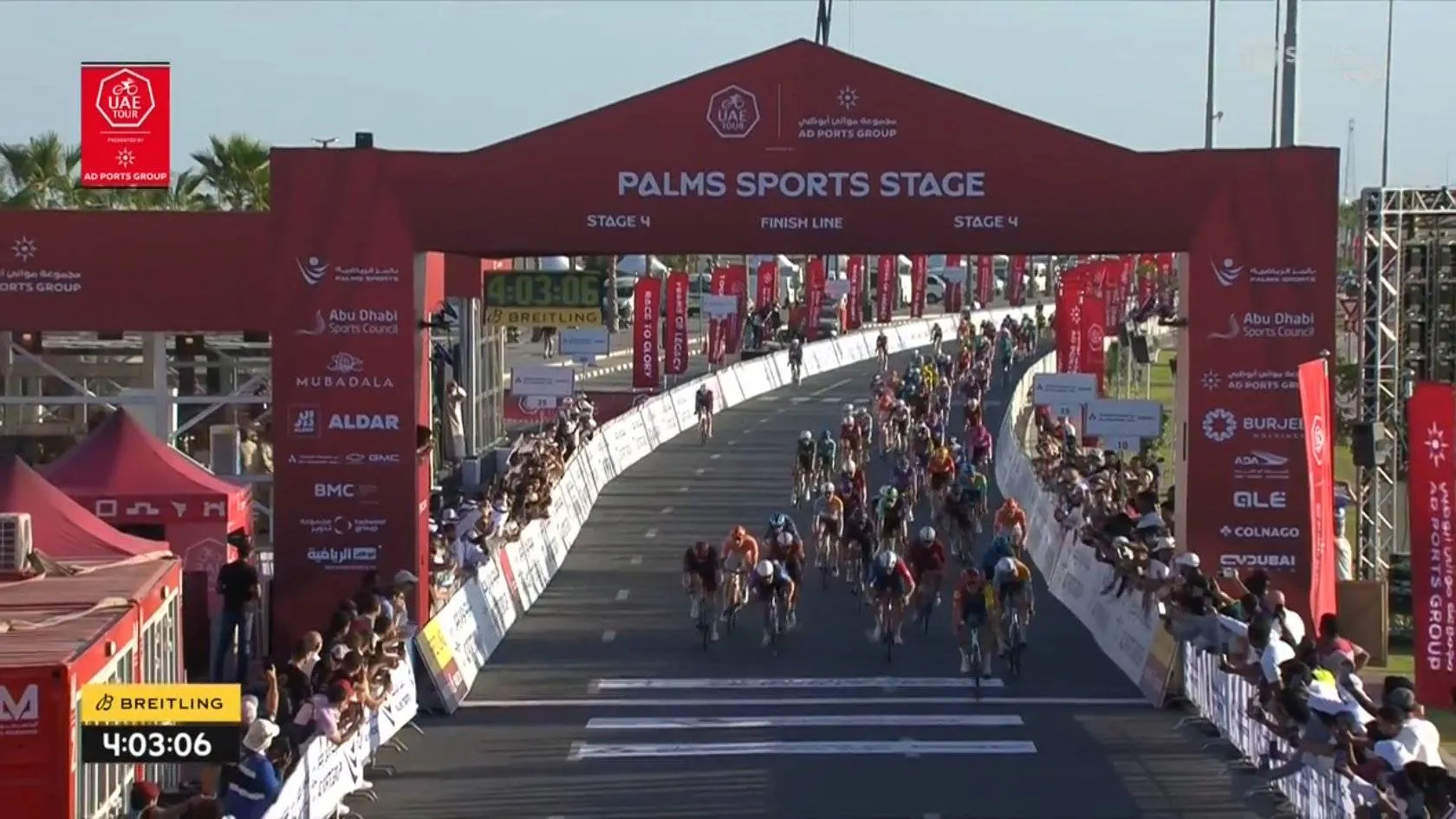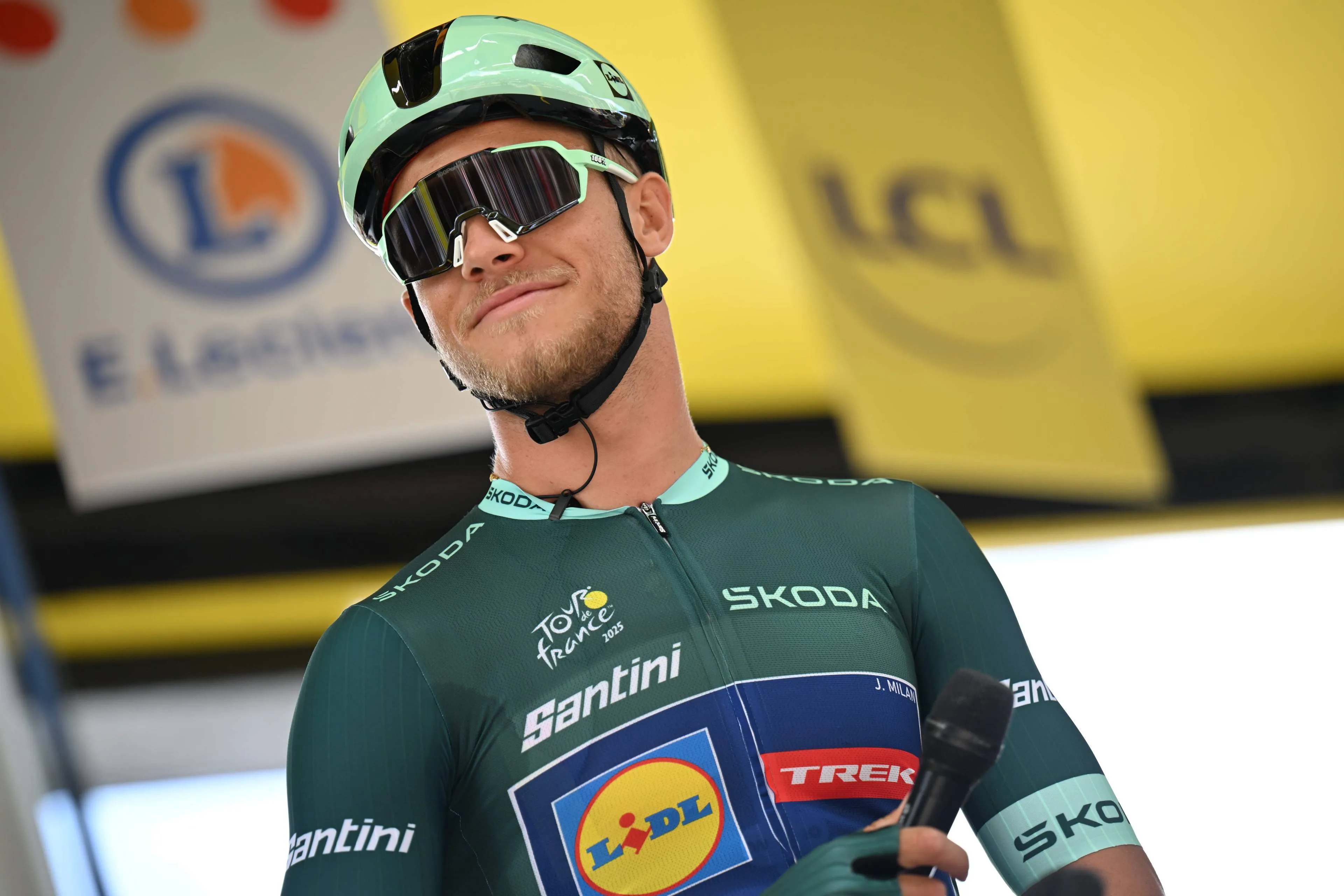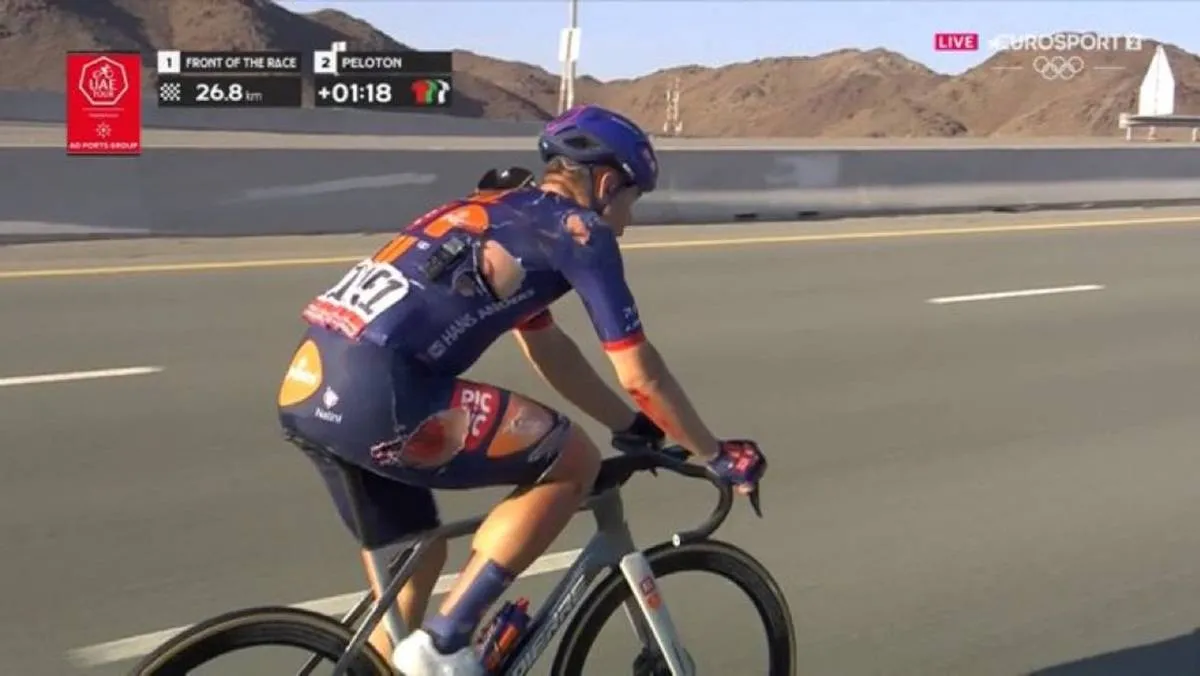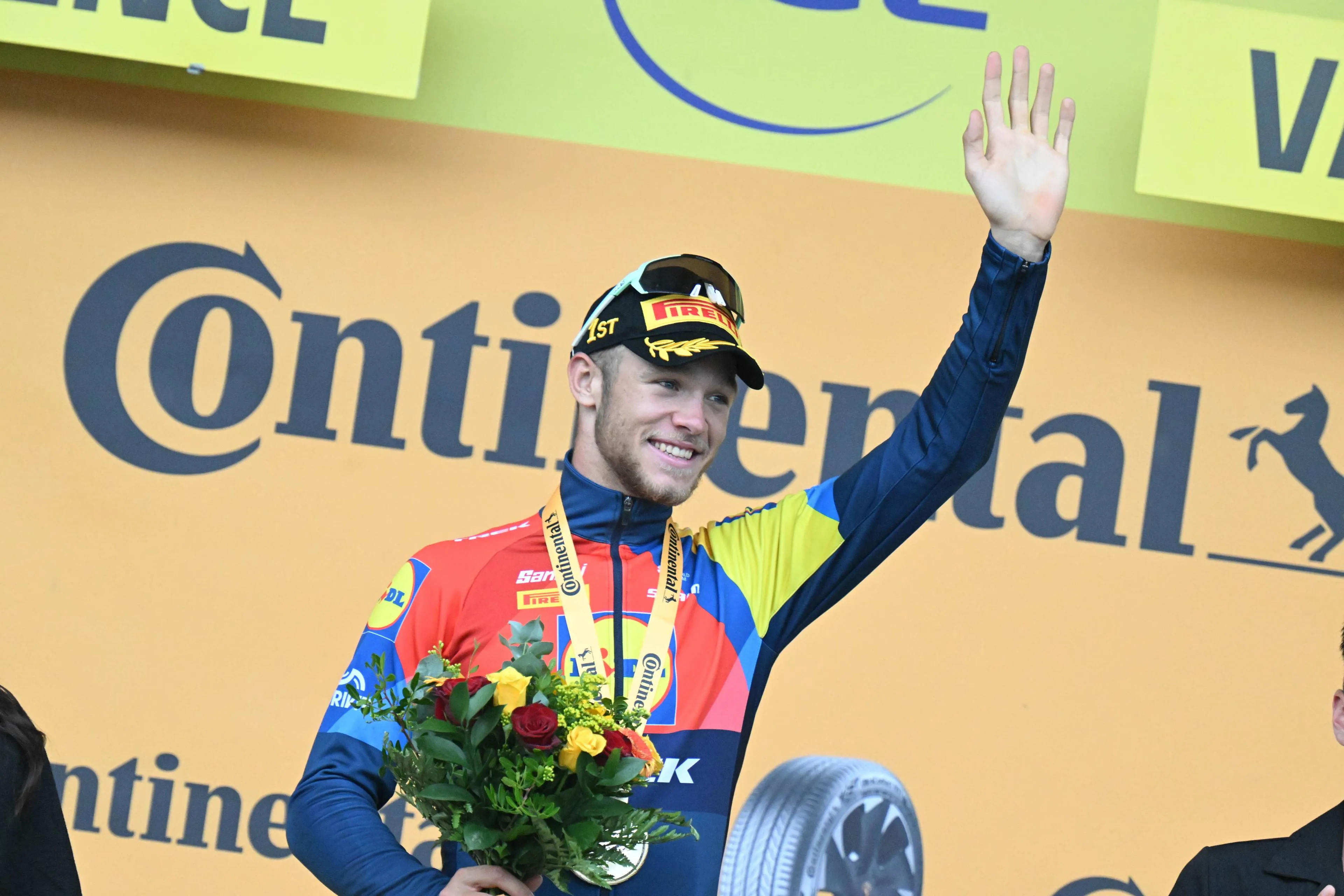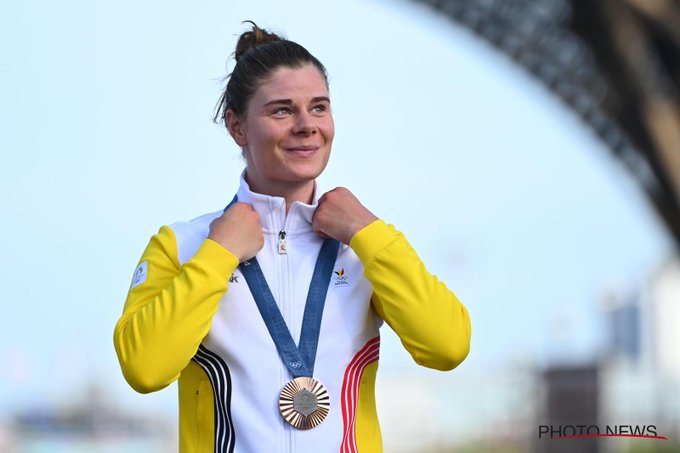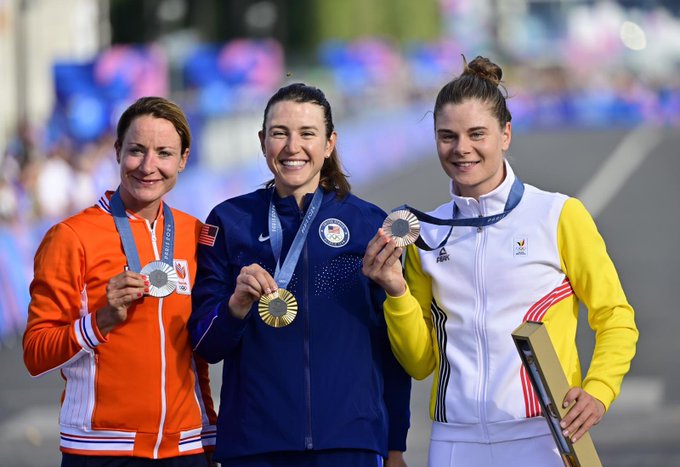"Lotte Kopecky can get her revenge in four years" insists Marijn de Vries after world champion is forced to settle for bronze in Olympic road race
CyclingMonday, 05 August 2024 at 16:00

After narrowly missing out on a medal in Tokyo back in 2021 finishing 4th, Lotte Kopecky went one better on Sunday afternoon in Paris, claiming a bronze medal. Could it have been even better though?
According to ex-pro turned pundit, Marijn de Vries, had it not been that Kopecky was caught up behind the crash of Chloe Dygert on the penultimate ascent of the brutal Montmartre climb, the Belgian who have had more than enough left in the tank to secure gold.
Read also
"That's part of cycling, but it's a shame that the crash determined the final," says De Vries in her analysis for Sporza. "Kopecky showed how strong she was after that crash, because she was the only one who could still cross over to the head of the race. She did waste a cartridge there, because after that she wasted her best. You could also see that during the chase with Faulkner on Blanka Vas and Marianne Vos. On the last climb of Montmartre she was not sitting comfortably on the wheel of the American."
"That chase lasted a long time, because Faulkner was also at her limit. It was a tough race. In the end, they were all dying swans and Kristen Faulkner died the least slowly," De Vries continues. "An attack was the only thing Faulkner could do, because she rode to the finish line as a non-sprinter with 3 fast women. But you still have to be able to do it of course. Her timing was perfect. Vos and Kopecky looked at each other and if Faulkner gets 2 meters, she's gone."
Despite bronze not being the colour medal many expected for Kopecky in her third Olympic road race, De Vries insists that the 28-year-old will still be more than competitive by the next the Los Angeles Olympic Games roll around in 2028. "She must have hoped for more, but she can be proud of her race. I certainly hope that she can get her revenge in four years," De Vries concludes.
Read also
claps 0visitors 0
Just in
Popular news
Latest comments
- Fabio cannot catch a break.mij19-02-2026
- OK, today is the "air conditioner"... yesterday was a cramp... on saturday a bee will sting him in his tongue... his tongue will swell up and mustafa gets no oxygen. Because of his swollen tongue, Remco won't be able to give us a new excuse. Remco and the spanish rat Ayuso should be on the same team. They both have a ton of excuses and both of them are liars. Ad acta.Mou-Cro-HR19-02-2026
- Florian Lipowitz is secretly happy
 Rafionain-Glas19-02-2026
Rafionain-Glas19-02-2026 - The crucial thing to remember is that Remco was broken by the pace of Gall and Tiberi, not Del Toro's. Remco's excessive antics are because he doesn't want anyone to think that he's 'genuinely' struggling. You can always say 'he got cramps' because 'his preparation didn't go to plan', but the thing is that there is a limit to the number of excuses and exceptions that there can be. Eventually everyone just accepts that he's reached his ceiling on the climbs.
 Rafionain-Glas19-02-2026
Rafionain-Glas19-02-2026 - Bahraini suspicious..Santiago19-02-2026
- The problem is, a British 'boss' opening the gates, when the native workers not wanting them!
 leedorney19-02-2026
leedorney19-02-2026 - Who is overrating him on climbs? Everyone knows since ages it’s his weakness and needed years of work. Question us if he can do enough about it. For sure he won’t be able to improve his TT enough to compensate.Mistermaumau19-02-2026
- What do you call only seeing someone’s positives?Mistermaumau19-02-2026
- Remco banging his leg, just like he banged his saddle when pog dropped him. He ain't fooling anyone with those antics. I'm not a hater, but he's a bit overrated on serious climbs.Santiago19-02-2026
- Obviously isn’t learning from the Epstein fallout. The more you unravel the past the more undiscovered mess appears.Mistermaumau19-02-2026
Loading
Olympic Bronze 🥉🤩 (📸 PhotoNews/Belga)
Write a comment


